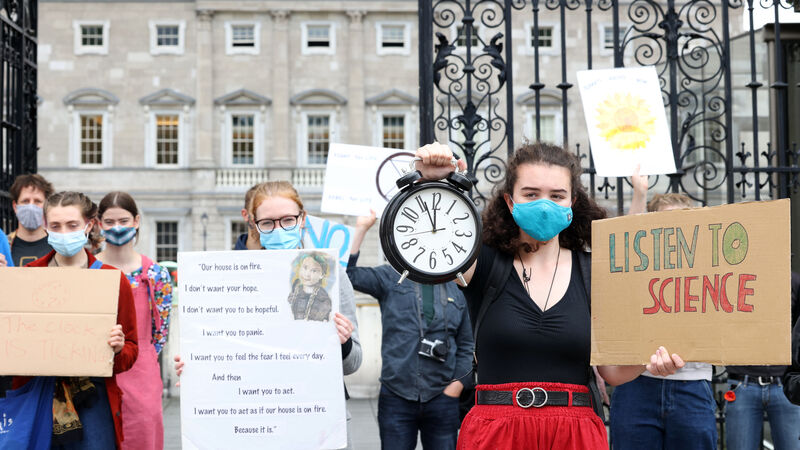Michael Clifford: Stormy weather of climate change must be faced by us all

As things stand, we have an ambitious target in this country that may now fall short of what is required to combat climate change. Photo: Sam Boal/Rollingnews.ie
Try from €1.50 / week
SUBSCRIBE
As things stand, we have an ambitious target in this country that may now fall short of what is required to combat climate change. Photo: Sam Boal/Rollingnews.ie
We’ve been having plenty of weather this summer. Whether it’s been good or bad depends on your perspective.
For instance, that dry spell for about 10 days at the end of last month was glorious as far as I’m concerned. I was down in south Kerry and when the sun shines on the Iveragh peninsula there is no better place to be (Fact!). The days were warm and long and the sea never as inviting.
Already a subscriber? Sign in
You have reached your article limit.
Annual €130 €80
Best value
Monthly €12€6 / month
Introductory offers for new customers. Annual billed once for first year. Renews at €130. Monthly initial discount (first 3 months) billed monthly, then €12 a month. Ts&Cs apply.
CONNECT WITH US TODAY
Be the first to know the latest news and updates
Newsletter
Sign up to the best reads of the week from irishexaminer.com selected just for you.

Select your favourite newsletters and get the best of Irish Examiner delivered to your inbox
Sunday, February 8, 2026 - 7:00 PM
Sunday, February 8, 2026 - 6:00 PM
Sunday, February 8, 2026 - 7:00 PM
© Examiner Echo Group Limited